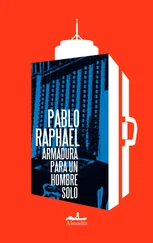He clung to his schedule as if it were a raft. Every morning, he cut through to his desk, ignoring the others’ tea and chat. The previous day’s logs were waiting for him, and he scanned the numbers with his ruler, checking they were correctly behaved. Then he retired to the laboratory, where assays of the previous day’s production were waiting, and tested their purity. After this, he poured some tea from his flask and walked the factory floor, always inhaling the acrid odour of chlorides with the same feeling of repellent reassurance, looking over the instrumentation for temperatures and flow rates. By lunchtime he had checked the factory’s stocks of raw materials, dealt with his correspondence, and made a report to Comrade Denov, the factory director.
Comrade Denov was an amiable man who was fond of hard work and long speeches. The factory was not merely a production unit for him: it was like a mission, and he introduced a great array of activities there. There were picnics and outings to the zoo. He hosted an evening reading group in Marxist theory. There were visits to the opera, for which he entertained a particular love. His wife often sent him to work with a cake.
One evening, he called Ulrich into the tiny cabin he called his office. Portraits of Marx and Lenin hung on the wall.
‘I’ve been watching you, Comrade Ulrich. You’re a curious individual.’
Comrade Denov had a tragicomic face that was prone to absurd grimaces even in his most serious moments.
‘You know the other workers make fun of you? They gossip about the lectures you give about chemical theories. They imitate the way you talk, staring at the sky over their heads. Did you know?’
‘No,’ replied Ulrich, simply.
‘Well, it’s true.’
The monthly production figures were lying on the director’s desk. All the graphs were rising. But they still fell short of the official figures, which rose much faster.
‘But it’s not malicious. They find you odd, but they can recognise you have a precious bond with this factory. Your affection is a strong thing. It commands respect.’
‘Thank you, comrade,’ said Ulrich uncertainly.
‘I’m a party man,’ said Denov. ‘I’ve believed in socialism all my life. You don’t know how poor my family was under the king, how desperately poor. I grew up with nothing — and now look at me. I’m running a factory and my sons are studying medicine at university. I owe everything to socialism.’
Ulrich found himself wondering where all the barium chloride went. It was strange he had not ever thought about this before. The factory was a logical universe whose processes came to an end when the finished barrels were loaded into a truck — and Ulrich’s thought stopped there too. But now he had visions of these barrels dispersing into every country of the Soviet bloc, and tried to imagine how they could all be used up.
‘They warned me about you, Comrade Ulrich. They said you’re a dangerous eccentric. But I’ve been watching you, and I like you. I want you to help me build a great factory. I’m not like others. I don’t care what your private opinions are. Is that understood?’
‘Yes,’ replied Ulrich.
Comrade Denov gave a jocular grimace again, and Ulrich suddenly felt a great loyalty to him.
Whenever the economic plans were announced, Comrade Denov summoned all the workers together for a speech.
‘These targets seem unattainable. But they have been calculated on the basis of the strength that each of you carries inside him. Strength you may not even know yourself. When it’s all over you will feel grateful that you have been tested like this.
‘The tales of your labour will be told far away! In Poland and Yugoslavia the workers will look jealously at the socialist Bulgaria you have created, and wish they had worked as hard as you. In the Soviet Union, they will say, They have out-Moscowed Moscow! ’
But the Five-Year Plans necessitated almost inconceivable leaps in production, and even the director fell prey to the general anxiety and depression. Crippling work schedules were insufficient to lift output to the required levels, and for months the factory was underperforming . There was hardship and misery all round, and no money for anything except essential supplies.
Ulrich could recall moments when he had fervently wished to be delivered from his mother. Her presence had tired him, and he had imagined that his energies would be released only when she was no longer around. But now she was gone, he found he had nothing left. He was empty, and traversed only by ghosts and shadows.
His daydreams turned morbid. He invented damning reports against himself, which he would submit to the police in return for his mother’s release.
Item
I complained on many occasions about the poor supply of bread in Sofia, and expressed aloud the belief that senior party members did not have to undergo such hardships. I allowed such delusions to lead me into public approbations of imperialist societies.
Item
I owned a number of recordings of Western music which I played at licentious gatherings at my house in order to corrupt the aesthetic taste of those around me. These included a large selection of American jazz of the most indecent variety. I liked to encourage women to imitate Western dancing at these gatherings for my own entertainment. I drank heavily, and, in my intoxication, I uttered obscenities against the party and against Our Friend, the Soviet Union.
Item
I harboured a dream of escaping across the border and making my way, finally, to New York. I boasted that many of my acquaintances had already made this journey, and they had told me of the tall buildings they had discovered there, and the wonderful life.
16
ONE SUNDAY AFTERNOON, Ulrich encountered Boris’s old friend, Georgi, in the street. It was twenty years since he had last seen him, and he had grown stout and bald, but Ulrich recognised him immediately.
He had spent years in jail for his revolutionary activities, and now he found himself showered with honours. He had become a colonel in the Secret Service, and he walked expansively, as if to allow room for his new aura. He seemed strangely happy to see Ulrich, and led him away to an expensive café with flowers and bow-tied waiters. Sitting down, he displayed his large stomach with a sensuousness that made Ulrich feel muddled. Georgi talked incessantly.
‘In the last years I shared a cell with another revolutionary, Atanas. He was married to a woman called Maria. Maria’s father was as rich as Rothschild: he was a big industrialist with several mansions, and factories all over the Balkans. So Maria was from one of Bulgaria’s leading families, she was closely connected to the king and the entire fascist government — and she had staked everything on her love for a scruffy communist revolutionary. Her parents disowned her, so she joined the party and came every day to jail to see Atanas. She brought fruit and biscuits, and told us news from the world outside.’
He ordered wine.
‘So what happened? She began to bring me gifts, too, and after a while she hid letters in them, full-blown declarations. I cannot think for love of you, I am dead not having you with me .’
Georgi raised his eyebrows to insinuate more. Man to man.
‘Can you imagine? In the beginning I tried to stay aloof, but I’d been stuck in jail for more than ten years, and here was a soft-skinned young woman making offers. What choice did I have?’
Ulrich could muster no more affection for Georgi than on the first time he had met him. His face was sour, and his teeth as broken as before, and Ulrich tried in vain to picture what this woman had seen in him, lying like a dog in jail.
Читать дальше
Конец ознакомительного отрывка
Купить книгу












